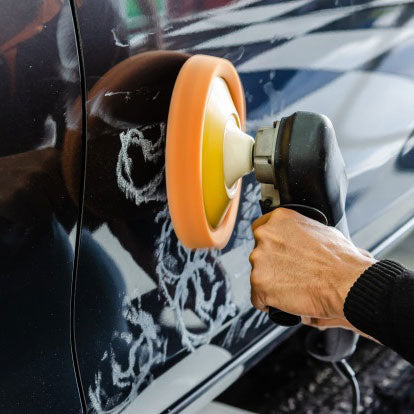Whether you’re attending a trade expo, a fan convention, or a business conference, navigating these events effectively can be a game changer for your career, brand, or personal development. Expos and conventions are busy centres of innovation, networking, and opportunity. But they can also be overwhelming and chaotic if you walk in unprepared. From the moment you register here’s some what to do, what not to do, and how to make your experience meaningful and productive.
Before the Expo: The Preparation Stage

Preparation is the foundation for success at any expo or convention. The more effort you put into preparing beforehand, the easier it becomes to navigate the event with confidence and clarity.
Do your homework well in advance. Research the event website, study the schedule, and familiarise yourself with the venue layout if it's available. Understand the theme, the key exhibitors, scheduled speakers, and any workshops or break sessions. Many events now come with an app or digital planner, use it to mark out your itinerary and pre-book sessions if required.
Don’t just show up and hope for the best. Walking into a convention hall without a game plan is overwhelming and ineffective. You may end up missing out on high-value opportunities simply because you didn’t know they existed. Preparation helps you navigate the chaos with intention and reduces stress on the day.
Planning: Know Your Purpose

Every attendee has a different reason for being at an expo or convention. Some are there to promote their product or service, others to network, some to learn from industry leaders, and others to scout talent or job opportunities.
Do take the time to set clear, achievable goals. For example, “I want to connect with five potential collaborators,” or “I want to attend at least three panels relevant to my field.” Or “I want to enter my work into a competition”. These goals help you stay focused and determine which parts of the event are worth your time.
Don’t try to do everything. Overscheduling yourself or trying to be everywhere at once can leave you exhausted and scattered. Prioritise events and sessions that align with your goals, and allow some buffer time for breaks or unexpected opportunities.
What to Pack and What to Wear

Packing smart and dressing appropriately are essential for maintaining comfort and professionalism throughout the day.
Do dress to match the event’s vibe. At industry expos or professional conferences, opt for business casual or corporate attire. For creative or fan-based conventions, a more relaxed style (or cosplay if appropriate) is perfectly acceptable. No matter the event, wear comfortable shoe, you’ll be doing a lot of walking and standing for long hours.
Pack light but smart. Essentials include your ID, printed or digital ticket, business cards, notepad and pen, phone charger or power bank, water bottle, snacks, and breath mints. If you're an exhibitor or speaker, you may also need promotional materials, USB drives, and backup equipment. If providing a service ensure you have enough of your stock and supplies to get you through.
Don’t bring a large, bulky bag full of non-essentials. It’ll weigh you down and make you appear disorganised. Likewise, avoid dressing too casually or overdressing, it can send the wrong message and make networking awkward.
Navigating the Floor

The expo or convention floor is often the busiest and most overwhelming part of the event. Dozens or even hundreds of booths, demonstrations, and activities compete for your attention.
Do start by reviewing the venue map and highlighting the booths or zones most relevant to your goals. Create a route that minimises backtracking. Take your time at booths, ask thoughtful questions, and collect materials that are genuinely useful to you. If there's a demo or product test, participate and ask how it connects to your interests or industry.
Don’t wander aimlessly or spend too much time at a single booth, especially if there’s a crowd. Exhibitors want to speak with as many people as possible, so be courteous. Don’t interrupt conversations or aggressively pitch yourself, wait your turn and engage respectfully.
Networking the Right Way

Expos and conventions are perfect environments for building your network, if you approach it correctly.
Do introduce yourself with a clear and concise introduction pitch. Be genuine in your conversations, and listen more than you speak. Ask open ended questions like, “What brought you to this event?” or “What’s been your biggest takeaway so far?” These spark natural dialogue and make you more memorable.
Always carry business cards or be ready to connect digitally via LinkedIn or an event app. Follow up on meaningful conversations after the event to solidify the connection. QR codes on a lanyard is a great quick access accessory.
Don’t be pushy or self-centred. Networking isn’t about how many people you meet, it’s about creating mutually beneficial relationships. Avoid handing out your card to everyone indiscriminately or talking only about yourself.
Attending Panels, Workshops, or Talks

Panels and workshops are often some of the most valuable parts of expos and conventions, offering deep dives into topics or trends.
Do arrive early to secure a good seat and settle in. Take notes during sessions, whether on your phone or with pen and paper. If there's a Q&A section, prepare thoughtful questions that add to the conversation.
Don’t distract others. Turn your phone on silent, avoid whispering or texting during presentations, and keep questions short and relevant. If your query is off-topic or highly specific, approach the speaker after the session instead.
Booth Etiquette for Exhibitors

If you're attending as an exhibitor, the rules of engagement shift. Your booth is your brand’s temporary storefront, make it count.
Do make your booth welcoming and interactive. Have clear signage, attractive displays, and approachable staff. Offer branded giveaways, interactive demos, or mini competitions to attract foot traffic. Stand (rather than sit), smile, and greet people proactively.
Don’t be disengaged. Sitting behind the table scrolling on your phone sends the message that you're not interested. Don’t be too aggressive with sales tactics either, focus on value-based conversations that resonate with attendees’ needs.
For Speakers or Presenters

Delivering a presentation at an expo or convention is a powerful way to establish authority and share your message.
Do practice your presentation in advance, ideally in front of a colleague or friend. Make sure your content is well-paced, informative, and relevant to the audience. Include real-world examples, and leave time for questions. Provide handouts or links to additional resources if possible.
Don’t read directly from your slides or go over your time limit. Audiences disengage quickly with monotone delivery or jargon-heavy language. Stay adaptable and respond to the room's energy.
Eating, Drinking, and Staying Energised

It’s easy to get caught up in the excitement and forget to take care of your body.
Do stay hydrated and keep a few healthy snacks on hand. Take breaks to rest your feet and give your brain a breather. Many venues have chill-out areas, use them.
Don’t skip meals or rely solely on coffee and energy drinks. This leads to burnout, mood swings, and a loss of focus, especially at multi-day events.
Use Social Media Wisely

Social media can amplify your presence at a convention and help you connect with others.
Do share relevant updates, insights, or photos using official event hashtags. Tag brands, speakers, or fellow attendees. Live tweet interesting quotes or panel moments, just don’t give away paid content if it's against event policy.
Don’t flood your feed with selfies or spammy promo posts. And absolutely don’t use social media as a platform for public complaints about the event. If you have feedback, direct it privately to organisers.
Respect Others and the Space

Large events are shared spaces, how you behave affects others experiences too.
Do be courteous, patient, and mindful of personal space. Respect queue etiquette, ask before taking photos of booths or people, and thank staff and volunteers. A little kindness goes a long way in crowded environments.
Don’t cut lines, block aisles, or push into conversations. Also, avoid dominating discussions or behaving rudely when things don’t go perfectly. Events are complex to manage, and a bit of grace is always appreciated.
After the Event

The event may be over, but your work isn’t done yet.
Do follow up with people you met within 48–72 hours. Send a short thank-you message or connect via LinkedIn or Instagram with a reminder of where you met. Review your notes, collect any business cards or digital contacts, and organise your takeaways into actionable steps.
Don’t let the momentum fizzle out. If you promised to send someone a resource or a sample, do it promptly. Don’t wait weeks, or you risk being forgotten.
Reflect and Learn for Next Time

Every expo or convention offers lessons that can improve your next experience.
Do take time to reflect on what went well and what didn’t. Did you meet your goals? What sessions were most valuable? What would you do differently next time? Use this reflection to inform your preparation for future events.
Don’t simply pack up and forget about it. Without reflection, you’re likely to repeat mistakes or miss the chance to improve.
Bonus Tips for Virtual and Hybrid Events

More conventions now offer virtual or hybrid formats, which bring their own challenges and etiquette.
Do treat a virtual event with the same respect as an in-person one. Log in early, dress appropriately, and engage in chats or Q&A sessions. Make sure your technology works—test your internet, camera, and microphone beforehand.
Don’t multitask or disengage. Just because you’re behind a screen doesn’t mean people aren’t paying attention. Be present and professional.

Expos and conventions are powerful tools for professional growth, inspiration, and connection, if approached strategically. Whether you’re attending to network, exhibit, learn, or speak, your preparation and behaviour will shape th
e outcomes.
Do plan ahead, engage with authenticity, and follow up afterward.
Don’t wing it, overextend yourself, or forget to be kind.
By staying organised, respectful, and goal-focused, you'll turn what could be an overwhelming event into a rewarding and potentially life changing experience.
So next time you sign up for an expo or convention, remember: show up with purpose, participate with professionalism, and walk away with more than just a tote bag full of flyers.



